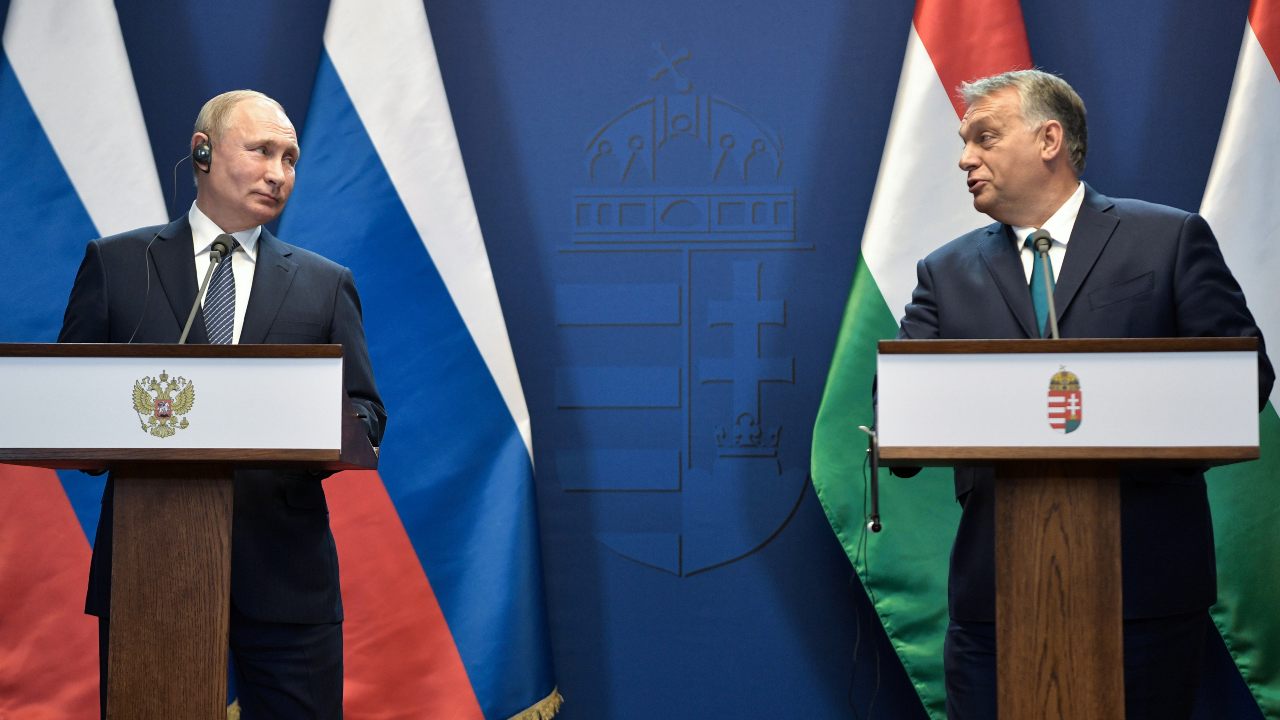Hungarian Prime Minister Viktor Orbán’s trips to Moscow and Beijing underscore a growing tension between NATO’s strategic objectives and Europe’s political cohesion.
Acting in his role as the rotating president of the European Union, Orbán’s overtures to Russia and China not only highlighted the divergent approaches in Europe towards major global powers but also fissures for adversaries of the West to exploit.
The rise of populist, anti-internationalist politics in France, Germany, and the US, have further exacerbated the vulnerabilities of the transatlantic partnership.
Orbán’s meetings with Russian President Vladimir Putin and Chinese leader Xi Jinping signaled Hungary’s willingness to forge closer ties with powers viewed with suspicion, if not outright hostility, by many Western leaders. His actions in discussing Ukraine’s fate can be seen as a direct challenge to the collective stance that NATO and the EU have sought to maintain against Russian aggression and China’s assertive global ambitions.
That was underlined on July 16, when it was revealed he had written to other EU leaders stating that Donald Trump wanted immediate negotiations between Russia and Ukraine if he won in November. Orbán accused the EU of mimicking “the pro-war policy of the US” and said this needed to end.
His motivations are multifaceted. Economically, Hungary has benefited from investments and energy deals with both Russia and China. Politically, his brand of illiberal democracy finds ideological resonance with the authoritarian tendencies of Moscow and Beijing. Strategically, Hungary’s position in NATO and the EU allows the Hungarian leader to use his relationships with Russia and China to enhance his domestic and international standing.
The tension between NATO’s strategic objectives and the actions of states like Hungary present a significant challenge. While NATO’s focus is on collective defense and deterrence, particularly against Russian expansionism and Chinese influence, the EU’s approach is more fragmented, with members pursuing their own diplomatic and economic interests, sometimes at the expense of a unified stance.
This disunity creates openings for adversaries. Russia, for instance, has long sought to weaken NATO by exploiting internal divisions. Orbán’s engagement with Putin provides Russia with a foothold in the EU and NATO, potentially undermining the alliance’s cohesion and decision-making processes. China, on the other hand, can use its economic leverage to drive a wedge between EU member states, promoting bilateral agreements that bypass EU regulations and norms.
The rise of anti-internationalist politics in key NATO countries adds another layer of complexity. In France, Marine Le Pen’s National Rally has gained significant support by advocating for a nationalist, anti-EU stance. Le Pen’s rhetoric often echoes Orbán’s, emphasizing sovereignty and opposition to what she views as overreach by Brussels.
Get the Latest
Sign up to receive regular emails and stay informed about CEPA’s work.
This nationalist sentiment threatens to undermine the EU’s collective decision-making and weaken its ability to present a united front on global issues. It was only after a second round of national elections on July 7 that Le Pen’s party was denied control of the French government, an unexpected outcome after such a strong showing in the first round.
In Germany, the Alternative for Germany (AfD) party has similarly capitalized on nationalist and anti-immigrant sentiments. The AfD’s skepticism towards NATO and the EU’s foreign policy has diminished Germany’s traditional role as a stabilizing force in Europe.
These parties’ rise reflects broader discontent across Europe, which adversaries like Russia and China can use to foster discord. Even in the US, former President Donald Trump’s criticisms of NATO create uncertainty about the future trajectory of Washington’s foreign policy, which may embolden adversaries to test the Western alliance’s resolve.
The tensions this causes have strategic implications. First, it complicates the ability of NATO to respond swiftly and decisively to threats. Consensus is crucial for NATO operations, and internal divisions can delay or dilute the alliance’s response to aggression.
Second, the lack of a unified EU foreign policy undermines Europe’s ability to act as a coherent global player. Individual member states pursuing separate agendas weaken the collective bargaining power of the EU, making it easier for adversaries to exploit bilateral relationships.
Third, the rise of anti-internationalist politics within key NATO countries erodes the ideological cohesion that has underpinned the transatlantic alliance in the 75 years since its founding. Shared values of democracy, human rights, and the rule of law are fundamental to NATO’s identity.
To counter these challenges, it is imperative for NATO and the EU to reinforce their commitment to collective defense and cohesive foreign policies, ensuring that internal differences do not undermine their strategic objectives in an increasingly competitive world. That may well mean taking a harder line against errant members whose behavior threatens the West’s great, treaty-based organizations.
Doug Livermore is vice president of operations at The Hoplite Group, a global threat analysis company providing bespoke support to government and commercial clients. Doug also continues his military service as the Deputy Commander for Special Operations Detachment – Joint Special Operations Command in the North Carolina Army National Guard. In addition to his role as the Director of Engagements for the Irregular Warfare Initiative, he is the National Director of External Communications for the Special Forces Association, National Vice President for the Special Operations Association of America, Director of Development of the Corioli Institute, and serves as Chair of the Advisory Committee for No One Left Behind.
Disclaimer: The views expressed are the author’s and do not represent official US Government, Department of Defense, or Department of the Army positions.
Europe’s Edge is CEPA’s online journal covering critical topics on the foreign policy docket across Europe and North America. All opinions are those of the author and do not necessarily represent the position or views of the institutions they represent or the Center for European Policy Analysis.
Europe’s Edge
CEPA’s online journal covering critical topics on the foreign policy docket across Europe and North America.

